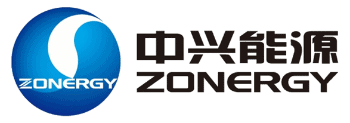As the Government strives to make transformational changes in the power system by exploring affordable alternative energy sources, Chinese companies are playing a leading role as installers and service providers for on-grid, off-grid, and hybrid energy in the country.
According to Gwadar Pro, alternative Energy Development Board (AEDB), Ministry of Energy ?besides its main objective to facilitate, promotes alternative and renewable energies (AREs)? also carries out certification of service providers, vendors, and installers of solar systems under AEDB (Certification) Regulations, 2018 to facilitate the consumers and distribution companies (DISCOs).
According to AEDB’s list issued on June 24, 2022, amongst the certified installers under AEDB (Certification) Regulations, 2021, Category C-1 (up to and above 500 kW), China’s Zonergy (Tianjin) Company Limited is on top of the list of 84 companies.
Zonergy has captured over 30% market share of distributed optical storage, making the company a well-known brand in Pakistan.
Similarly, in the list of companies falling under Category ARE-V1, with installations of capacity up to 1000 kW, China’s M/s Ningbo Green Light Energy (Private) Limited has occupied the second position. The list is also issued on June 24 under AEDB Certification Regulation 2018 which contains 19 companies. Currently, there are more than 160 active AEDB certified installers compared to 104 in 2021 which shows an increase of 55 percent. Different Chinese companies are included in categories V-1, V-2, V-3, C-1, C-2, and C-3 of AEDB.
The potential for solar power in Pakistan is high, as sunlight is available abundantly almost throughout the country. Currently, the capacity share of these renewable resources is small, but it is expected to increase sharply, as reflected in the Alternative and Renewable Energy Policy 2019. The installed capacity of solar is 600 MW which is around 1.4 percent of the total installed capacity.
Overall, there is an increase in the percentage share of renewable energy including solar which is a good sign for the economy as well as for the environment. “The percentage contribution of solar has increased from 1.07 percent in July-April FY2021 to 1.4 percent during July-April FY2022,” according to an official document available with Gwadar Pro.
The Private Power and Infrastructure Board (PPIB), which is now merged with AEDB, is aiming to continue prioritizing indigenous and renewable-resource. During July-Mar FY2022, a total of 10,783 net metering-based systems of 196.77 MW capacity were installed by different segments of consumers. As of December 31, 2021, the number of net-metering-based solar installations had reached 17,950 with a cumulative capacity of 305.79 MW.
The Government is committed to the global agenda of SDGs goal 7 and investing in renewable and alternative sources of energy to cater to Pakistan’s growing energy demand.
In this regard, the gigantic target would be to add 37,339 MW of renewable energy projects (Wind, Solar, Bagasse, and Hydro) by 2030.—INP









